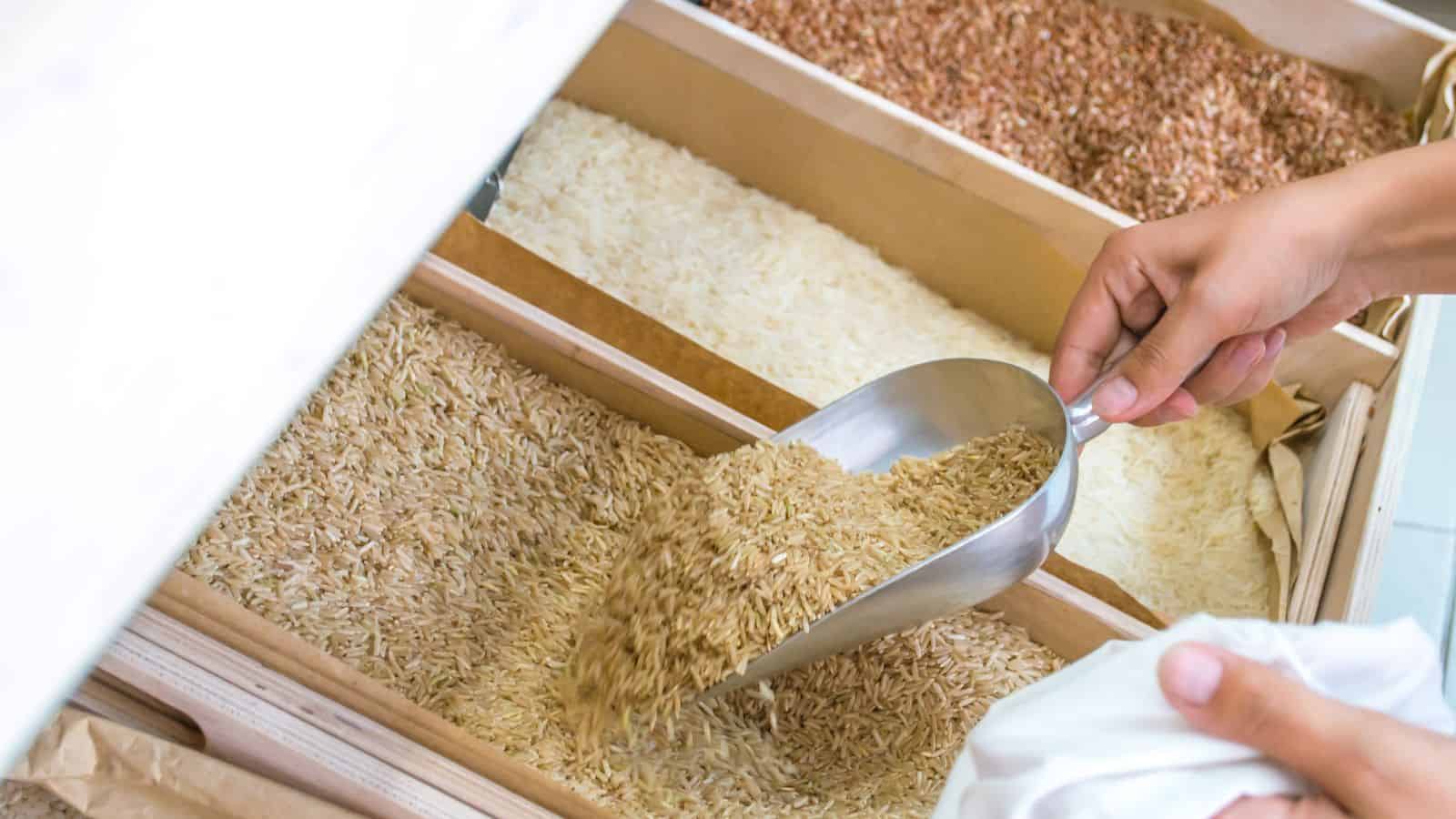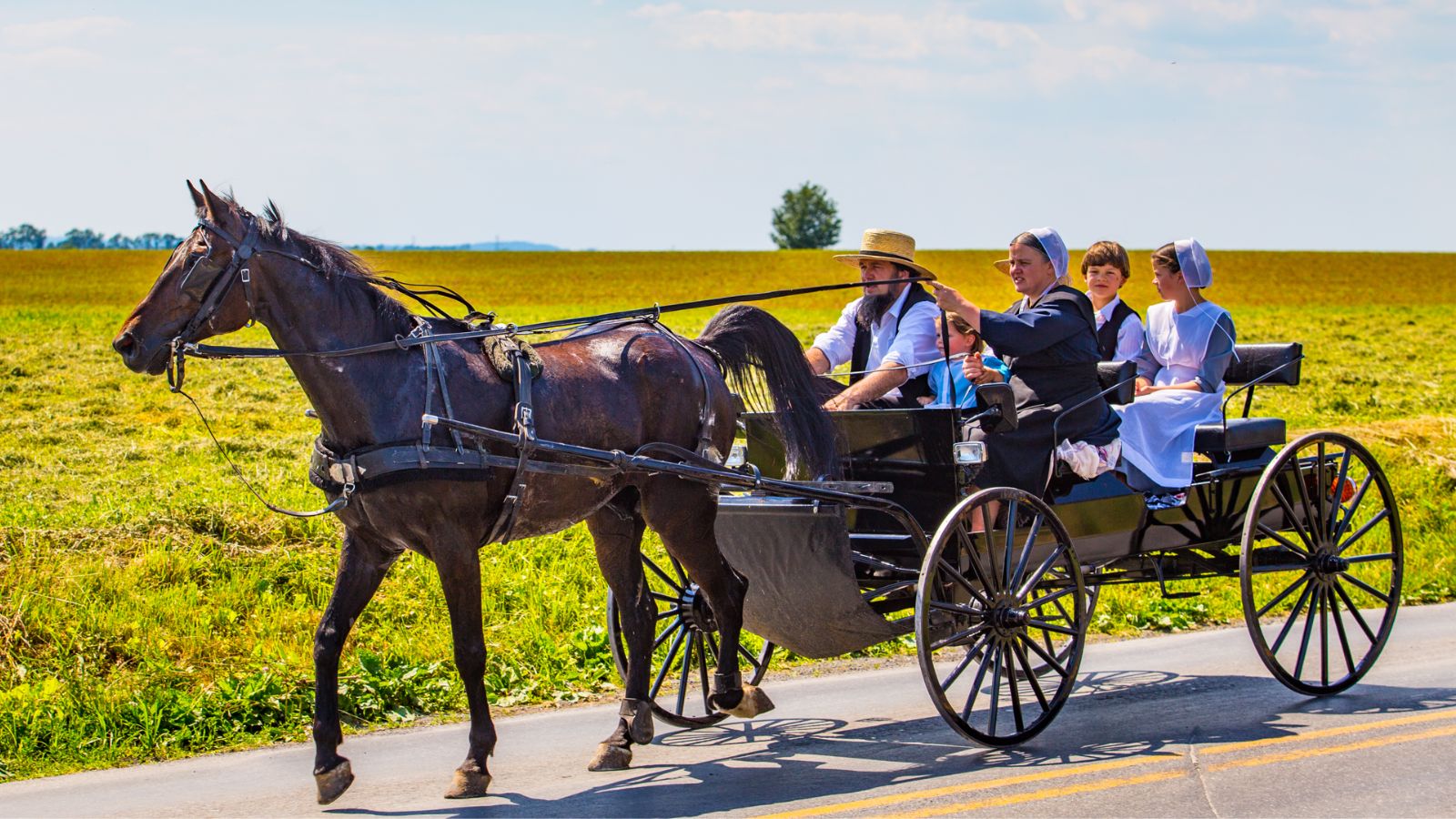The Amish live separated from our capitalist world, and there are lessons on excellent money management we can learn from their way of life. Here are 19 lessons you can take from the Amish to improve your finances.
Grow Your Own Food

The Amish are known to grow the food they eat themselves, and there are many benefits to this. As Investopedia simply put it, “Growing your own food is a healthy way to save money and enjoy fresh produce at home.” By maintaining a small garden for vegetables and herbs, you significantly cut down on grocery costs and also avoid harmful chemicals in store-bought food.
Cook from Scratch

If growing your own food is too much work for you, then you can opt for cooking your meals from scratch, just like the Amish do. CNET reveals that cooking from scratch allows you to save 50% on food on average. And considering that it’s a healthier option as well, this is one of the best money-saving tips you can go by.
Use Natural Cleaning Products

Amish households are also known to use natural cleaning products, typically made from ingredients like vinegar and baking soda. You should understand that these natural ingredients are sufficient for most surfaces you intend to clean at home, and not only are they cheaper, but they also save you from harsh synthetic chemicals.
Repair Instead of Replace

When something breaks, the Amish typically repair it rather than replace it. Adopting this mindset can help you not just save money but also reduce waste. Learning basic repair skills for clothing, appliances, and furniture means fewer new purchases and a longer lifespan for your belongings.
Limit Electricity Use

Amish communities use minimal electricity, which significantly lowers utility bills. You can adopt similar practices by turning off lights when not in use, unplugging electronics, and using energy-efficient appliances. These simple changes can make a big difference in your monthly expenses and in reducing the wear and tear on your appliances.
Make Your Own Clothes

Sewing your own clothes, a common Amish practice, can save money and provide custom-fitted garments too. Even if you’re not an expert, starting with simple projects like aprons or basic skirts can help you gradually build your skills and reduce clothing costs as soon as you can.
Buy in Bulk

Buying in bulk, as the Amish often do, can lead to significant savings on staples like grains, beans, and flour. This practice lowers your per-unit costs, saves you money on trips to the store, and even reduces your environmental waste. However, as Today advises, always stick to non-perishable goods.
Embrace Hand-Me-Downs

Amish families frequently use hand-me-downs, passing clothing and other items from one child to another. This tradition can be applied in your own home to save money. Accepting and sharing used items among friends and family can extend the life of products that can still be of use.
Preserve Food

Preserving food through canning, drying, or freezing helps Amish families avoid waste and save money. Learning these skills can allow you to store seasonal produce for later use, and this means you can enjoy fruits and vegetables year-round without the added expense of out-of-season prices.
Build Rather Than Buy

The Amish also often build their own furniture and structures, which saves them hundreds or even thousands of dollars. Even if you’re not a carpenter, learning basic DIY skills can help you create simple projects like shelves or garden beds. Over time, this will lead to significant savings.
Limit Transportation Costs

Amish people primarily use horse-drawn buggies, keeping their transportation costs low. While not practical for everyone, you can reduce your own costs by walking, biking, carpooling, or using public transportation whenever possible. This not only saves money but also provides you with a form of exercise and promotes a healthier lifestyle.
Barter and Trade

Bartering and trading services or goods is a common Amish practice that reduces the need for cash. Consider exchanging skills with friends and neighbors, like trading gardening help for babysitting. This also fosters community connections and provides mutual benefits for everyone around you without spending money.
Keep a Simple Wardrobe

Amish wardrobes are typically simple and functional, which minimizes clothing expenses. By focusing on quality over quantity and choosing timeless pieces, you can reduce the need for frequent purchases. A smaller, well-chosen wardrobe can meet your needs without excessive spending, and it will allow you to spend less in the long run.
Share Resources

Sharing resources within the community is a key Amish principle that saves money. Whether it’s tools, equipment, or skills, sharing reduces the need for individual purchases. You can organize a community tool library or skills exchange to benefit from collective resources and save you and others around you money.
Practice Self-Sufficiency

Self-sufficiency is at the core of Amish life, and activities like growing your own food, making your own clothes, and learning repair skills all contribute to this. Each step towards self-sufficiency reduces reliance on others for your goods and services, leading to significant long-term savings.
Avoid Impulse Buying

The Amish also avoid impulse purchases, focusing on what is necessary. Practicing this can save you money and it can also help you reduce clutter. This mindset helps you make more intentional, thoughtful purchases that are truly needed, and before buying, consider if the item is essential.
Opt for Quality Over Quantity

Amish craftsmanship is known for its quality, which reduces the need for frequent replacements. Yes, they require more initial investment. But investing in high-quality items, whether it be clothing, furniture, or even fixtures in your home, gives you items that last longer and saves you money over time.
Limit Media Consumption

The Amish also lead media-free lives, and even this helps them save some money. Forbes shares that limiting media consumption reduces exposure to advertisements and discourages you from spending on non-essential products. Either replace TV and internet content with financial advice or take your interests completely offline.
Engage in Community Activities

One way to replace media consumption is through community engagement. The Amish engage in community activities that are often low-cost or free, and participating in local events, potlucks, or volunteer work can provide you with meaningful social interactions without the need for expensive outings. You also enjoy a sense of belonging and community by doing this.
Up Next: 20 Personal Things You Should Never Share With Others

Building meaningful connections with others requires a certain level of transparency and trust, but that doesn’t mean you have to tell your friends and family members everything! Some aspects of our lives are too personal, incriminating, or risky to share. This article explores 20 aspects of your personal life that you should always keep confidential.
20 Personal Things You Should Never Share With Others
18 Things Everyone Forgets to Include in Their Will—But Shouldn’t

Wills and estate plans are essential ways to ensure what will happen to your belongings and property when you die or are incapacitated. However, people often forget to include important information in their wills before it’s too late, complicating matters for their descendants. Here are the 18 common things people forget to include in their will.
18 Things Everyone Forgets to Include in Their Will—But Shouldn’t
18 Items at Walmart that Aren’t Worth Your Hard-Earned Money

For many of us, Walmart is the go-to superstore. Whether we need groceries, clothing, or technology, Walmart is a one-stop shop for everything you would need. However, there are some Walmart products you should avoid at all costs, such as the following 18 examples.
18 ITEMS AT WALMART THAT AREN’T WORTH YOUR HARD-EARNED MONEY

